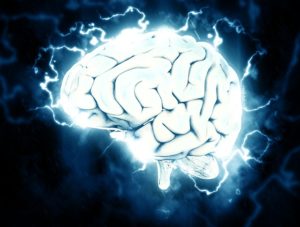 There is a realistic chance that you could sustain anything from minor to very serious injuries in a car accident. Many people who head out to work or to run errands never know how quickly their lives could change in the blink of an eye, which is why we are always told to be prepared for these accidents that could take place so quickly on our roadways. One of the most serious injuries that individuals sustain on our roadways every day are traumatic brain injuries, and today we want to shed some light on these injuries and help drivers gain a better understanding of what they can expect.
There is a realistic chance that you could sustain anything from minor to very serious injuries in a car accident. Many people who head out to work or to run errands never know how quickly their lives could change in the blink of an eye, which is why we are always told to be prepared for these accidents that could take place so quickly on our roadways. One of the most serious injuries that individuals sustain on our roadways every day are traumatic brain injuries, and today we want to shed some light on these injuries and help drivers gain a better understanding of what they can expect.
TBI: What They Are and Common Symptoms
Traumatic brain injuries (TBI) occur in car accidents when your head suffers a severe and violent blow from the force of the impact of the car accident. They are commonly known as concussions, brain injuries, or other head trauma. Unfortunately, they tend to also be very common injuries in car accidents, though they are usually minor concussions in the majority of cases, rather than deadly instances. They still continue to make up about 30% of all injury-related deaths in car accidents every year.
Many people will experience a variety of different symptoms relating to their traumatic brain injuries as well. One individual’s brain injury symptoms can be incredibly different from another person’s symptoms, which is why it is difficult to prepare for these types of injuries.
The truth is that, in the mildest forms, TBI can be very subtle. You might believe that you are fine after a car accident because, well, you feel fine. So, you go home and you move forward with your life only for symptoms to appear weeks to months down the road related to the TBI, causing you agony and grief. Many people will experience symptoms including headaches, light-headedness, sensory issues, ringing in ears, sensitivity to lights, depression or anxiety, a change in sleep patterns, or problems remembering certain things.
There are also many emergency symptoms that can show up immediately following an accident, such as a loss of consciousness, convulsions, nausea or vomiting, slurred speech, or weakness of limbs. In the worst cases, individuals might experience brain death, coma, or be in a vegetative state due to the severity of their brain injury. No matter what symptoms you experience, you should always seek immediate medical attention.
Returning to Normal Life
You might find that it is sometimes difficult to return to normal life after you have received a brain injury. Many of these injuries will cause some type of permanent physical or mental changes, making certain tasks in everyday life impossible. You might have trouble remembering things, which has severely impacted your job and made it difficult to return to work. Perhaps you are unable to complete certain tasks, such as cooking a meal, completing chores, and going out with friends, without feeling headaches or fatigue. If your brain injury has had this effect on your life and you believe another party is at fault, it might be time to speak with an attorney about your options.
You should never have to handle your claim on your own after you have suffered severely at the hands of another party. If you have been seriously injured with a traumatic brain injury following a West Virginia car accident, we would like to speak with you about your options immediately. At Katz, Kantor, Stonestreet & Buckner, our accident attorneys understand how difficult it can be to move forward after an accident. Please contact us as soon as possible for more information at (304) 713-2014.
